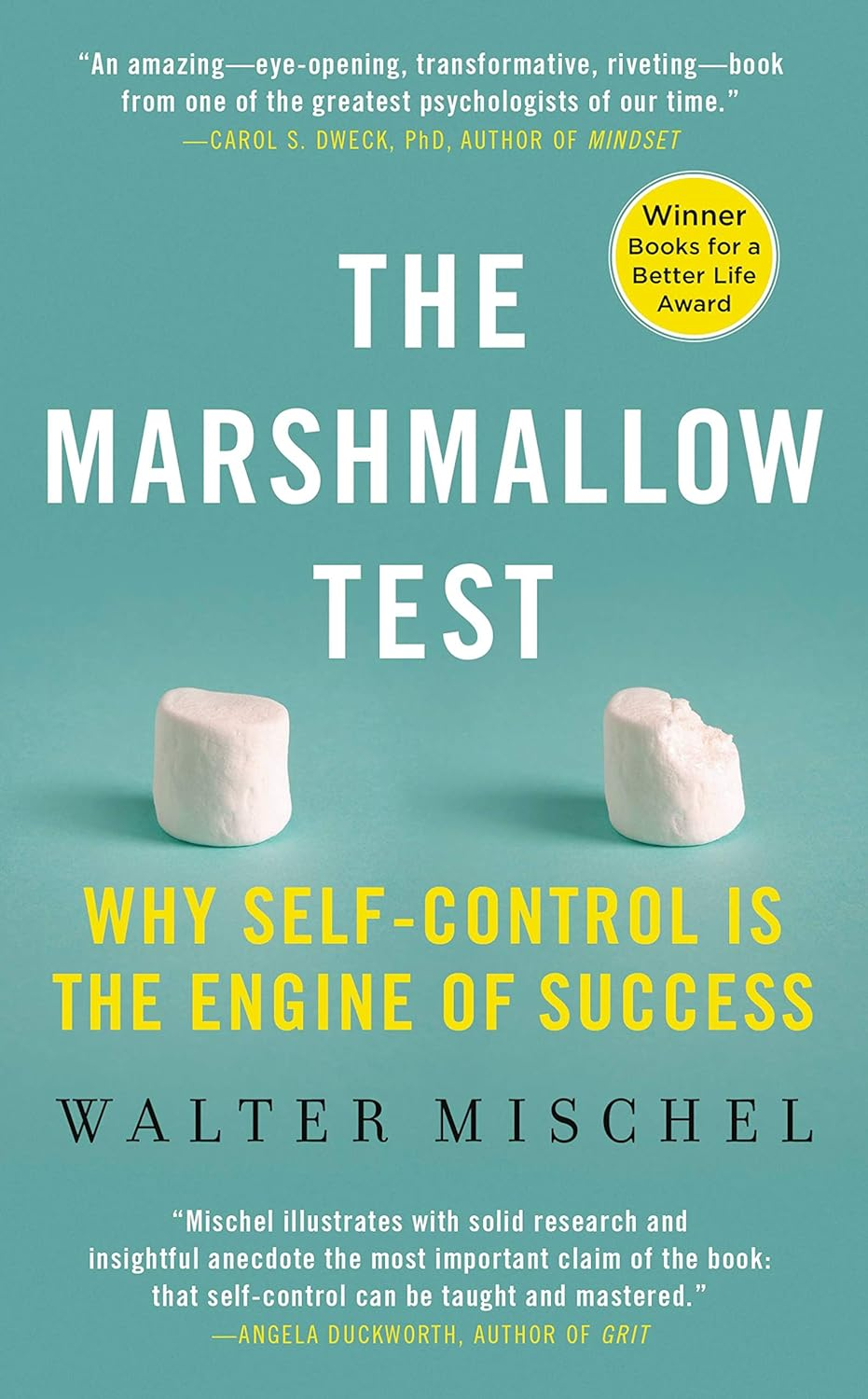← The Marshmallow Test Mastering Self Control
The Marshmallow Test Chapter 10. Beyond the Here and Now
Author: Walter Mischel Publisher: New York, NY: Little, Brown and Company. Publish Date: 2014-9 Review Date: Status:💥
Annotations
130
PSYCHOLOGICAL DISTANCE
131
Psychologists Yaacov Trope and Nira Liberman propose that when we imagine the future or think about the past we are traversing a single dimension: psychological distance. The distance can be in time (now versus in the future or the past), space (near versus far away), social (self versus strangers), and certainty (definite versus hypothetical). The greater the psychological distance, the more abstract and high-level information processing becomes, increasingly governed by the cool cognitive system. In my colleague’s travel example, she had thought about the trip abstractly, without details and context in mind when it was far off in the future, and because it had seemed reasonable and made sense to her cool system, she had decided to go. As the psychological distance shrank, the more concrete, vivid, detailed, contextualized, and emotionally hot her information processing became, and the more she regretted her decision.
Note: exactly my problem with college
131
This shift in the level of information processing, from abstract thinking about the future to concrete and vivid thinking in the present, affects what we feel and how we plan, evaluate, and make decisions. It helps explain why people make decisions about future events and commitments that they often regret—because when the future becomes the present, they find themselves facing a trip they don’t want to take, an event they don’t want to attend, a paper they don’t want to write, or a family visit they don’t want to make. The good news is that all will be well if we just wait and reflect for a bit after an event is over. The psychological immune system works hard so that we can look back and feel that the trip was worth taking, the event worth attending, the paper worth writing, and the family visit, on the whole, a good bonding experience.
132
To avoid the regret my colleague felt when her trip went from the hypothetical to the reality of packing and heading off to the airport, it might have helped if, before deciding to accept, she had imagined how it would play out as if it were happening now. If you want to decide how something (a new job, an exotic trip) will feel in the future, you might try to imagine yourself doing it in the present. Simulate the events as vividly as possible, in great detail, by essentially pre-living them. When my graduate students are fortunate enough to have more than one job offer and are tortured about their decision, I suggest that they imagine, as concretely as they can, living life in each job, one full day at a time, as if the job were happening now.
132
The research by Trope and his colleagues on how psychological distance influences us also speaks to why it is much easier to resist immediate temptations if we think about them in abstract, cool ways or as being far away in space and time. Such high-level, abstract thinking activates the cool system and attenuates the hot system. It reduces the automatic preference for immediate rewards, increases attention to future outcomes, strengthens intentions to exert self-control, and helps cool down hot temptations. Recall that when preschoolers push the treats far away, or turn around to avoid seeing them, or appraise their tempting treats at an abstract, cool level (imagine the marshmallows are just a picture; put a frame around them in your head), they are able to control themselves and wait much longer. But when they focus on the taste of the marshmallows and imagine appetitive, salient qualities in their mouths (yummy, chewy, sweet), delay becomes more difficult and they ring the bell.
Note: sounds like conceptual understanding rather than experiential
Note: I feel like controlling impulses by thinking about future consequences is too abstract and relies to much on faith. I think we can better learn to prioritize frayed gratification by experientially focusing on the negative consequences of short term gratifying activities. Thus you will not have to restrain yourself according to hypothetical outcomes, but will not even be inclined toward that action in the first place
134
Hedy Kober, who was also working with Ochsner’s team, led a similar study in which she showed photographs of cigarettes to induce cravings in heavy cigarette smokers. During each trial, while their brains were being imaged, participants were instructed to think of the item they saw by focusing either on its immediate, short-term effect “now” (e.g., “It will feel good”) or on the “later” long-term consequences associated with consuming it (e.g., “I may get lung cancer”). When heavy cigarette smokers focused on the long-term consequences of cigarette smoking they significantly reduced their cigarette cravings.
Note: imaging the possibility of lung cancer is ineffective because it’s decontextualized
Note: why do they think smokings bad in the first place and that they should quit? Because somebody told them? Or because they saw it for themselves?
Note: Another superior method I believe is remembering negative consequences rather than imagining them
